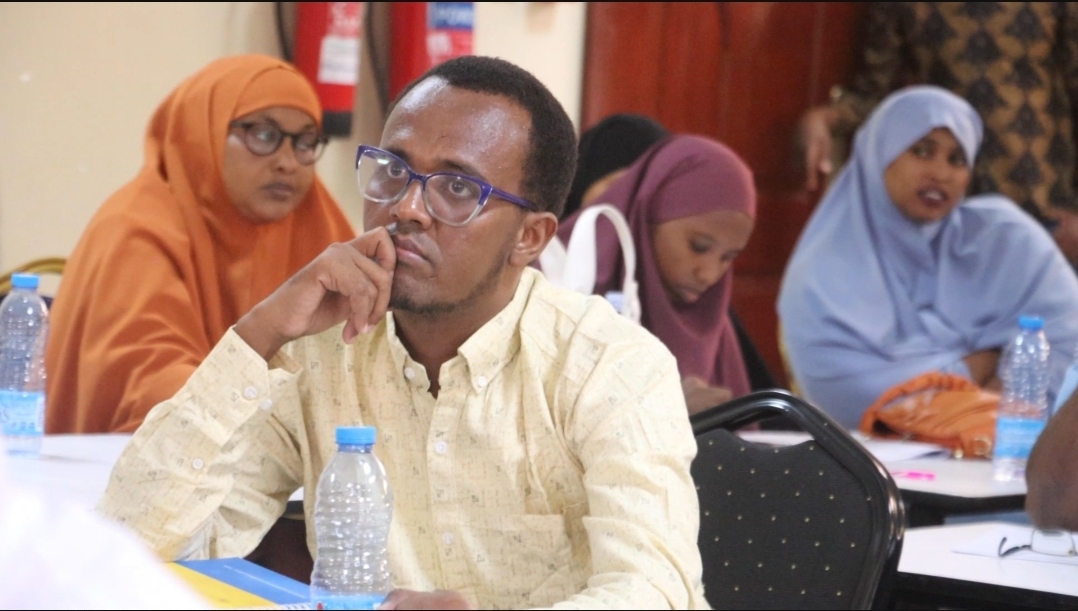Wajir leaders, residents unite in call for ban on muguka, miraa

Governor Ahmed Abdullahi signalled that the county would join the coastal counties of Mombasa, Kilifi, and Taita Taveta, which had earlier banned the sale, supply, and consumption of muguka.
Wajir residents and leaders have called for the ban and regulation of muguka and miraa during a stakeholders meeting to discuss the Wajir County Drugs and Substance Abuse Control Bill on Tuesday.
Wajir Governor Ahmed Abdullahi urged the national government to address drug abuse uniformly across the country, criticising what he perceived as double standards in its approach.
More To Read
- Kilifi North MP Owen Baya withdraws controversial Muguka Bill after DP Kindiki meeting
- Muguka farmers face uncertain future as new Bill seeks delisting
- Garissa County advances bill to restrict muguka trade beyond designated areas
- How Muslim clerics are helping members stay away from drug abuse
- Ruto's pledge as meeting with Coast leaders over muguka ban finally takes place
- Education stakeholders back Mombasa's muguka ban
Ahmed, who is also the Vice-Chairperson of the Council of Governors, said muguka and miraa are substances regulated under the NACADA Act of 2012, which mandates the National Authority for the Campaign Against Alcohol and Drug Abuse.
The governor disagreed with the national government's emphasis on combating chang'aa and illicit brews in Central Kenya and the Rift Valley, while seemingly endorsing the use of miraa and muguka elsewhere.
"We strongly oppose these actions and will collaborate with various agencies to develop strategies for controlling, regulating, and possibly banning these substances, which have negative impacts on youth," said Governor Ahmed.
He signalled that the county would join the coastal counties of Mombasa, Kilifi, and Taita Taveta, which had earlier banned the sale, supply, and consumption of muguka – a variety of the popular stimulant known as khat or miraa.
 Wajir Governor Ahmed Abdullahi speaks at a public participation meeting regarding the ban and regulation of muguka and miraa on in the county on June 18, 2024. (Photo: Mohamed Anko)
Wajir Governor Ahmed Abdullahi speaks at a public participation meeting regarding the ban and regulation of muguka and miraa on in the county on June 18, 2024. (Photo: Mohamed Anko)
"The wearer of the shoe knows where it pinches. What is good for the goose is good for the gander," said the governor.
"If banning alcohol where alcoholism is a problem is beneficial, then banning muguka and miraa where there are issues is also beneficial," he added.
The proposed Drugs Control Bill is undergoing public scrutiny before advancing to the County Committee members and eventually to the Wajir County Assembly for consideration.
Unified action
Wajir Senator Abass Mohammed Sheikh called for unified action against the growing issue of drug abuse.
Highlighting the severity of the situation, Senator Abass emphasised that the use of stimulants poses even greater risks than alcoholism due to its profound adverse effects.
Senator Abass urged youth in the county to steer clear of the destructive path of drug addiction.
He stressed the importance of choosing a healthy lifestyle and contributing positively to their community.
The senator called upon community leaders and stakeholders to join hands in combating the issue.
"It is only through collective efforts that we can effectively tackle the challenges posed by drug abuse," he said.
Abdille Yusuf, Wajir County Assembly Speaker pledged swift action upon receiving the proposed bill aimed at addressing concerns related to miraa within the county.
 From left: Wajir County Speaker Abdille Yusuf, Wajir Governor Ahmed Abdullahi and Senator Abass Mohammed Sheikh attend a meeting to discuss the ban and regulation of muguka and miraa in Wajir County on June 18, 2024. (Photo: Mohamed Anko)
From left: Wajir County Speaker Abdille Yusuf, Wajir Governor Ahmed Abdullahi and Senator Abass Mohammed Sheikh attend a meeting to discuss the ban and regulation of muguka and miraa in Wajir County on June 18, 2024. (Photo: Mohamed Anko)
The speaker assured the public that the County Assembly is committed to fast-tracking the tabling and deliberation of the bill as soon as it reaches the legislative chamber.
Miraa has been a subject of debate due to its effects on public health and social dynamics. The proposed bill at the local level, aims to regulate its cultivation, sale, and consumption within Wajir County, taking into account the concerns raised by various stakeholders.
Increased taxation
Fatuma Hassan, one of the stakeholders attending the meeting, proposed increased taxation and business license fees related to miraa.
"By raising taxes and fees, we can deter consumption and generate revenue that can be reinvested in public health and education," Fatuma said.
Dr. Mohamed Abdi, a community health practitioner, expressed support for banning miraa sale and its consumption in county-owned offices, schools, and public areas.
"Miraa consumption contributes to health problems such as dental issues and mental health disorders," Dr Mohamed explained to the gathering.
He stressed the importance of creating environments that promote wellness and productivity, free from the influence of stimulant substances.
Mwalimu Ahmed, an educationist, said teachers have seen for themselves the detrimental effects of miraa on students' academic performance.
"Banning miraa in schools is crucial to maintaining a conducive learning environment," he proposed.
He called for measures to protect the educational pursuits and prospects of the county's youth, urging policymakers to prioritise their well-being.
Others in the meeting were Members of the Wajir County Assembly, Wajir County Executive Committee members, Chief Officers, representatives from the national government, the Chamber of Commerce, the Miraa Traders Association, and religious leaders.
Top Stories Today











































